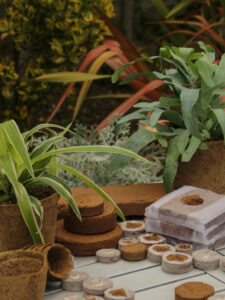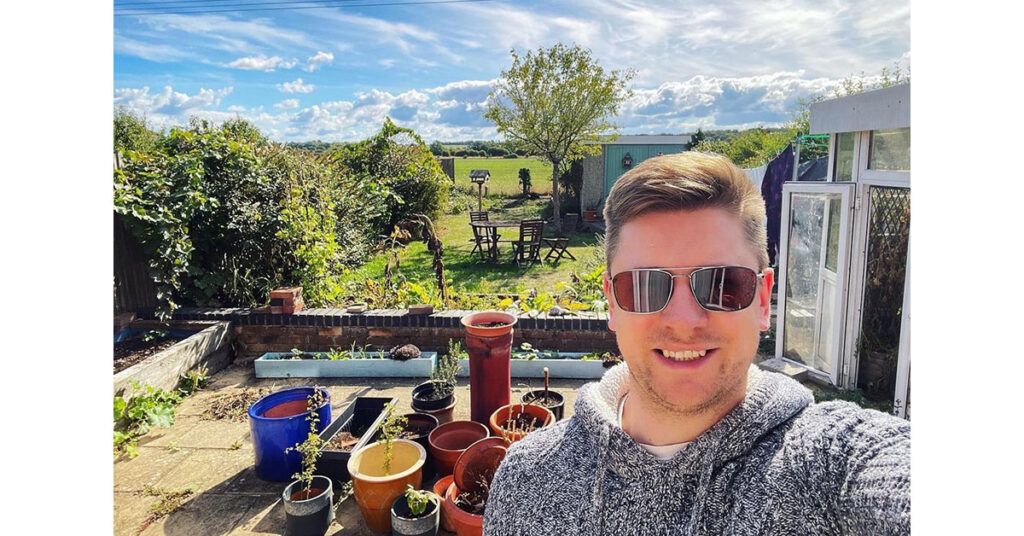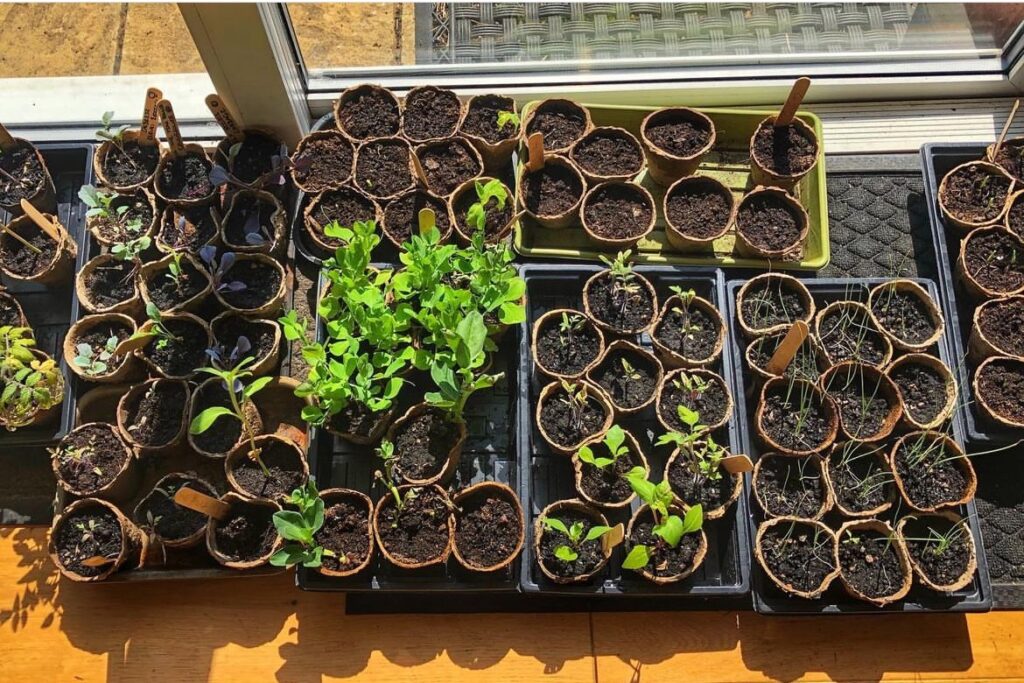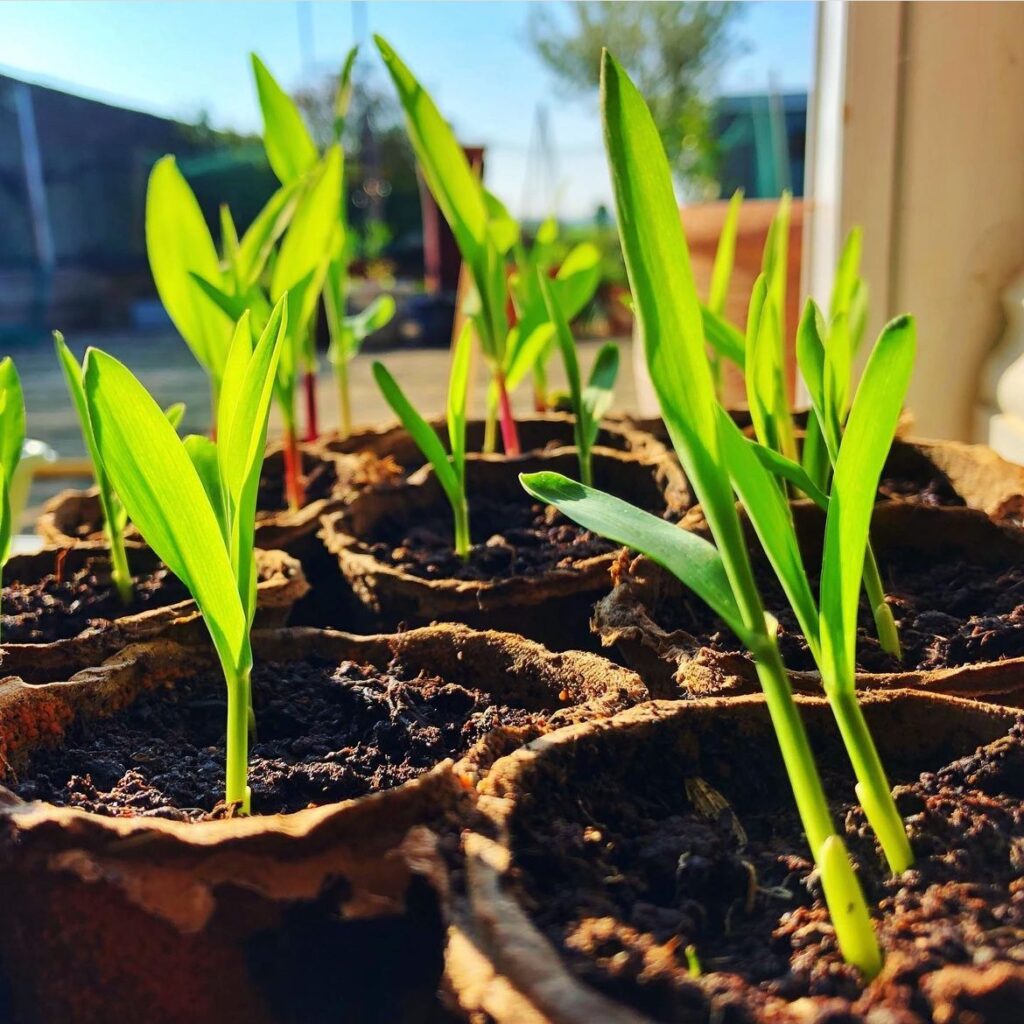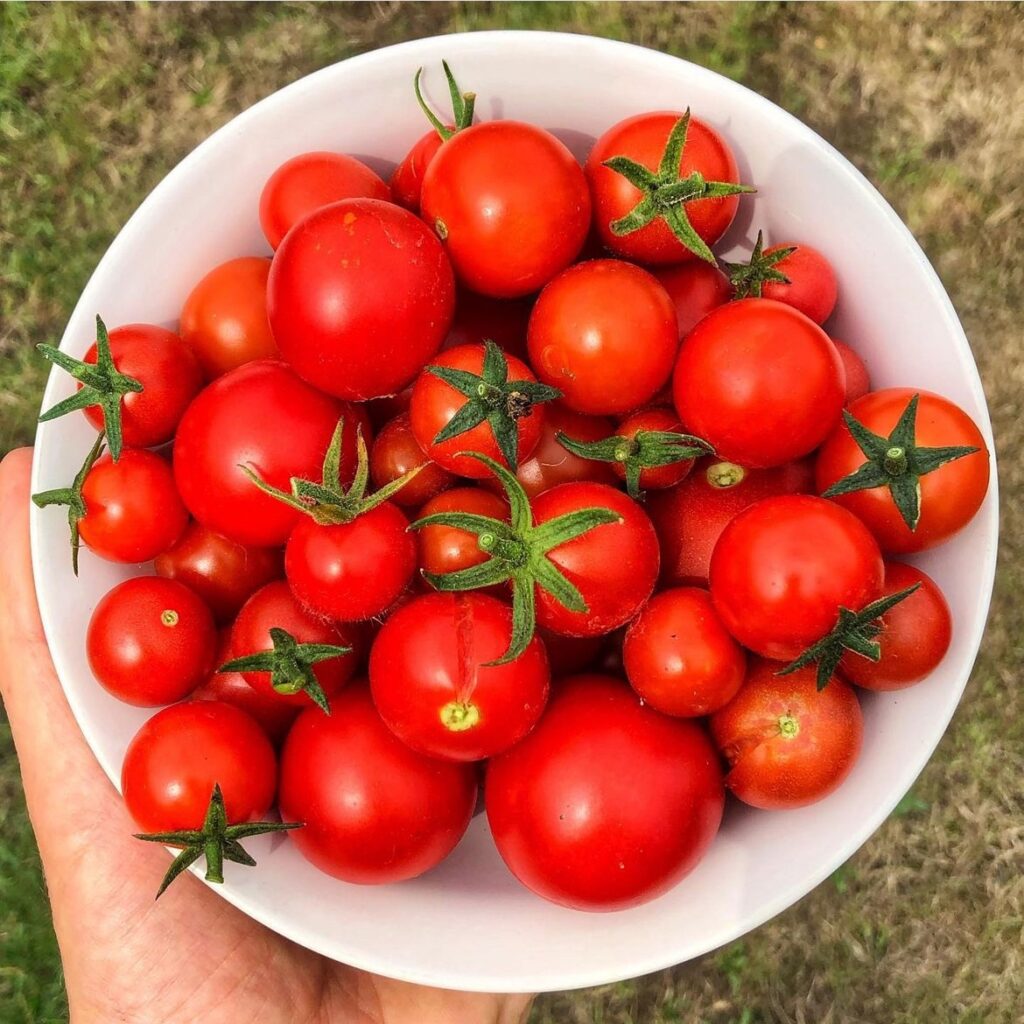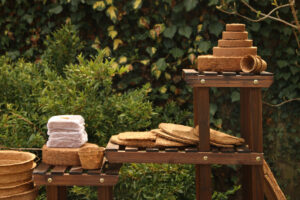On the other hand, one of the main challenges is the massive difficulty in knowing whether you did something wrong! “When you choose a new variety, and it doesn’t do that well, why is that!? Was it something you did – too much water, not enough water, too much light, not enough light, moved it into the greenhouse too early or too late, planted it out too early or too late, was it the weather that year, the soil, or something else? There are so many variables that it can feel impossible to make any progress in really understanding what’s happening,” Dave says.
Speaking about other gardeners and growers who inspire them the most Dave says, at the moment, they are @shieulyb, @growingwithkaz, @themodestgardener_sa, @plot_37, @good_life_garden, @yourorganicpt, and @ambersallotment. He adds that they are mostly inspired by people that just “have a go”. “We started with very little knowledge, made and still make loads of mistakes, but we do it because we love the taste of sun-warmed tomatoes!”
Dave also shared some tips and suggestions, “If you are limited for space, grow up, and look for a return on your efforts! Things like old fashioned peas, runner beans, cucumbers, tomatoes, courgettes produce a lot of food for the amount of ground space that they take up, and for the amount of effort that you put in. Planting one carrot seed gets you one carrot, but planting one tomato seed can get you a hundred tomatoes!” In addition, he says, to look for companion planting, “when you grow certain plants together, they help each other out, and this can improve your harvests.” And he adds, “look up succession planting – this is something we have a long way to go on – but you can grow multiple things in the same space over the course of the year, so if you only have a small space, this can be a real game changer.” And, knowing the value of the Instagram community, Dave says, they are happy to take questions any time!
Growing their own has had a tremendous impact upon Dave and his family. “It has given us a happy place to go and spend time. Being outside, somewhere different, with the bees and the butterflies, has a profoundly calming effect. Watching the ants race around starts to put life into perspective, and there is nothing better than the flavour of homegrown veg.
It’s also super important to us that our kids will grow up understanding where their food comes from and how it happens. It’s amazing to be able to provide that kind of education to them, even on a tiny scale.”
